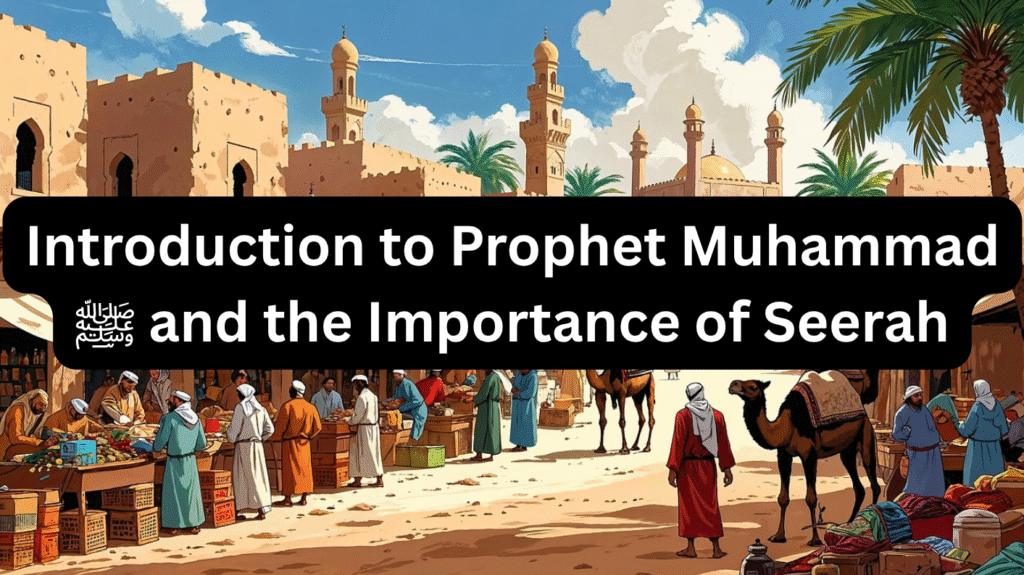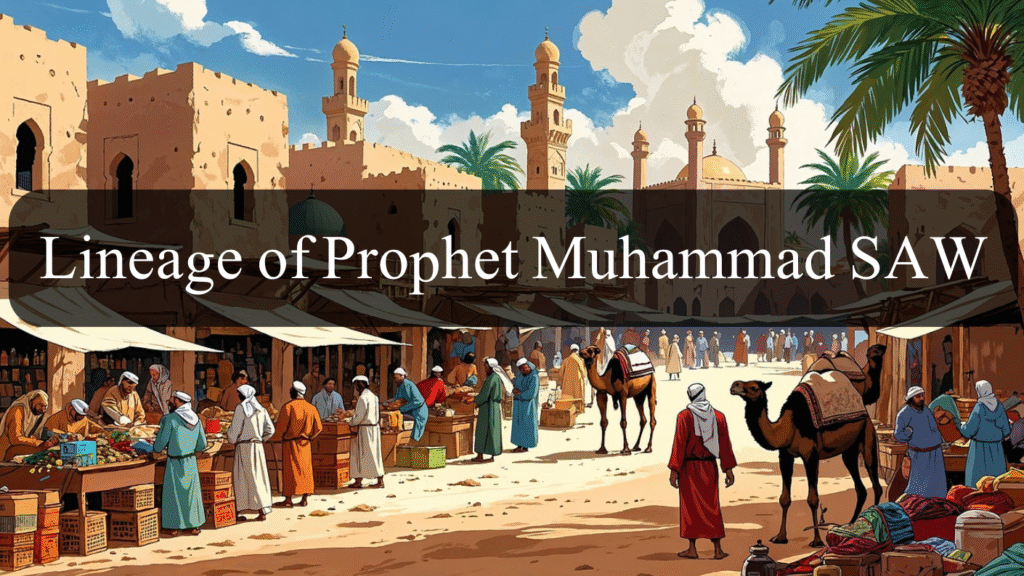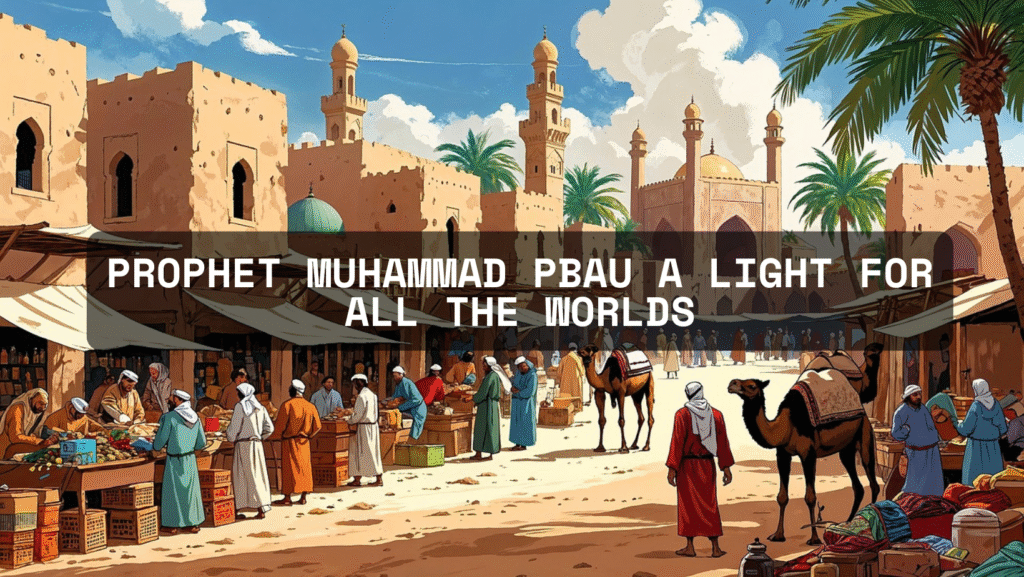The Astonishing Prophecy: How Prophet Muhammad (PBUH) Foretold Umar’s Martyrdom During Mosque Construction
Introduction
The umar martyrdom prophecy stands as one of the most remarkable predictions in Islamic history, demonstrating Prophet Muhammad’s (PBUH) divine connection and foresight. This profound prophecy, delivered during the sacred act of mosque construction, foretold the tragic martyrdom of one of Islam’s greatest companions, Umar ibn Al-Khattab (RA), at the hands of rebels. The umar martyrdom prophecy not only showcases the Prophet’s access to unseen knowledge but also serves as a powerful testament to the truthfulness of his message.
Historical Context: The Mosque Expansion Project
During the expansion of Masjid an-Nabawi in Medina, Prophet Muhammad (PBUH) and his companions were personally participating in the construction work. The atmosphere was filled with spiritual devotion and communal harmony as Muslims worked together to expand Allah’s house. It was during this sacred activity, while handling construction materials and working alongside his companions, that the Prophet (PBUH) revealed the umar martyrdom prophecy that would echo through Islamic history.
The Prophecy Unfolds: A Moment of Divine Revelation
As recorded in authentic hadith collections, Prophet Muhammad (PBUH) made this profound statement while working at the construction site. The companions were passing bricks and building materials when the Prophet (PBUH) paused and addressed Umar (RA) directly, delivering the umar martyrdom prophecy that would later be tragically fulfilled.
Arabic Text:
“يَا عُمَرُ، إِنَّهُ لَا يُقْتَلُكَ إِلَّا رَجُلٌ مِنْ أَهْلِ الْكِتَابِ”
English Translation:
“O Umar, none will kill you except a man from the People of the Book.”
Authentic Sources and Historical Verification
The umar martyrdom prophecy is meticulously documented in multiple authentic Islamic sources, ensuring its historical accuracy and reliability. These sources include:
Sahih al-Bukhari (Book of Virtues of the Companions, Hadith 3675)
Sahih Muslim (Book of Virtues, Hadith 4412)
Musnad Ahmad (Vol. 1, Page 23, Hadith 156)
Al-Tabaqat al-Kubra by Ibn Sa’d (Volume 3, Page 350)
Tarikh al-Tabari (History of the Prophets and Kings, Volume 4)
The Tragic Fulfillment: Historical Details
The umar martyrdom prophecy was tragically fulfilled years later with precise accuracy:
Date: 26 Dhul-Hijjah 23 AH (3 November 644 CE)
Location: Masjid an-Nabawi, Medina during Fajr prayer
Assassin: Abu Lu’lu’a Firuz, a Persian Zoroastrian slave
Weapon: A double-edged dagger dipped in poison
Circumstances: Umar (RA) was leading the morning prayer when he was attacked
The Significance and Impact of the Prophecy
The umar martyrdom prophecy holds profound theological and historical significance for several reasons:
Divine Knowledge Demonstration: The prophecy showcased the Prophet’s access to unseen knowledge (ilm al-ghayb)
Companion’s Elevated Status: Highlighted Umar’s special position and importance in Islam
Historical Accuracy: Precisely predicted the circumstances and background of the assassin
Theological Importance: Affirmed the concept of prophethood and divine revelation in Islam
Community Preparation: Prepared the Muslim community for future challenges
Lessons for Contemporary Muslims
The umar martyrdom prophecy offers enduring lessons for modern Muslims:
Trust in Divine Decree: Understanding that everything occurs according to Allah’s perfect wisdom and timing
Dignity of Labor: Emphasizing the spiritual value of physical work and community service
Historical Consciousness: Learning from Islamic history to navigate contemporary challenges
Companion Appreciation: Recognizing the immense sacrifices made by early Muslims
Prophecy Validation: Strengthening faith through the verification of divine predictions
Relevant Quranic Verses Supporting Prophecy
Several Quranic verses support the concept of divine prophecy and knowledge of the unseen:
Surah Al-Hadid (57:22):
“No disaster strikes upon the earth or among yourselves except that it is in a register before We bring it into being – indeed that, for Allah, is easy.”
Surah Al-Imran (3:144):
“Muhammad is not but a messenger. Other messengers have passed on before him…”
Surah Al-Jinn (72:26-27):
“He is the Knower of the unseen, and He does not disclose His unseen to anyone, except to a messenger whom He has chosen.”
Historical Impact and Succession
The fulfillment of the umar martyrdom prophecy significantly impacted Islamic history:
Succession Planning: Led to the establishment of the electoral council (Shura) for caliphate succession
Governance Development: Strengthened Islamic governance systems and security measures
Community Unity: Brought Muslims together during a time of crisis
Historical Documentation: Ensured meticulous preservation of Islamic historical records
Modern Relevance and Applications
The umar martyrdom prophecy remains profoundly relevant today:
Faith Strengthening: Serves as evidence supporting the truthfulness of Islam
Historical Context: Provides understanding of early Islamic leadership challenges
Spiritual Lessons: Offers insights into patience, perseverance, and trust in Allah
Educational Value: Teaches the importance of mosque construction and maintenance
Interfaith Understanding: Demonstrates Islam’s connection to earlier Abrahamic traditions
Conclusion: The Eternal Significance
The umar martyrdom prophecy stands as an eternal testament to Prophet Muhammad’s (PBUH) truthfulness and divine connection. This remarkable prediction, made during the sacred act of mosque construction, continues to strengthen the faith of millions of believers worldwide. It serves as a powerful reminder of the sacrifices made by early Muslims and the perfect wisdom of divine decree.
As we reflect on this prophecy, we are reminded of the words of Allah in Surah Al-An’am (6:50): “Say: I do not say to you that I have the treasures of Allah, nor do I know the unseen, nor do I say to you that I am an angel. I only follow what is revealed to me.”
Sources and References:
Sahih al-Bukhari (Volume 5, Book 57, Hadith 50)
Sahih Muslim (Book 44, Hadith 241)
Musnad Ahmad ibn Hanbal (Volume 1)
Al-Tabaqat al-Kubra by Muhammad ibn Sa’d
Tarikh al-Tabari (History of the Prophets and Kings)
Al-Bidayah wa al-Nihayah by Ibn Kathir




